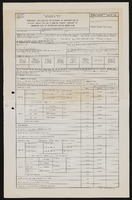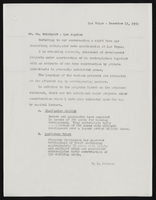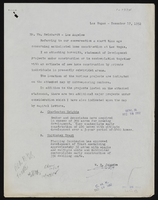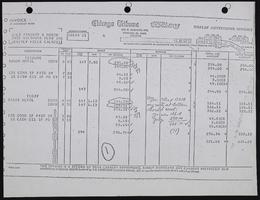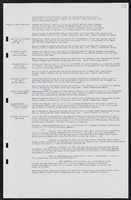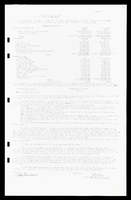Search the Special Collections and Archives Portal
Search Results
Carlos Gomez (Latin Chamber of Commerce) oral history interview conducted by Elia Del Carmen Solano-Patricio: transcript
Date
2023-01-27
Archival Collection
Description
From the Lincy Institute "Perspectives from the COVID-19 Pandemic" Oral History Project (MS-01178) -- Business interviews file.
Text

Transcript of an interview with Ian and Shanna Anderson by Barbara Tabach on October 11, 2013.
Date
2013-10-11
Archival Collection
Description
In 2011, Ian and Shanna Anderson moved into their McNeil Estates home with their two young children. Though both of the children born-and-raised Nevadan, neither Ian nor Shanna is. However, as the couple explains in this interview, letting their roots grow in Las Vegas has been quite easy. Ian has lived in Las Vegas since 1997 and Shanna since 2008. Ian was raised in Central corridor of Phoenix, where he explains he was in the minority as a white person. Shanna, by contrast, is a native of Ann Arbor, Michigan. They met, married at Taliesin West (Scottsdale, AZ) and settled in Las Vegas, where both work in the office furniture industry. Shanna and Ian share a passion for design, especially midcentury modern design. So when they felt the need to move from their Summerlin home, they looked for a house in the center of the city. Something clicked when they saw 2601 Mason Avenue. It was a burnt out shell of a dwelling, but their vision of what could be became a tale of imagination and patie
Text
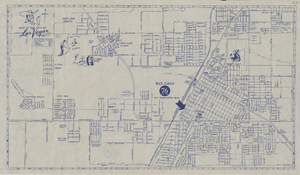
Street map of the city of Las Vegas, 1955
Date
1955
Description
20 x 35 cm., folded to 22 x 11 cm. Copyright held by Redwood Pub. Co. "Compliments of 'Buck' Evans 76 Union"--Panel. Index on verso. Includes table of mileages to Las Vegas from other cities in the Southwest. Original publisher: Redwood Publishing Co., Scale: .
Image
Pagination
Refine my results
Content Type
Creator or Contributor
Subject
Archival Collection
Digital Project
Resource Type
Year
Material Type
Place
Language
Records Classification

